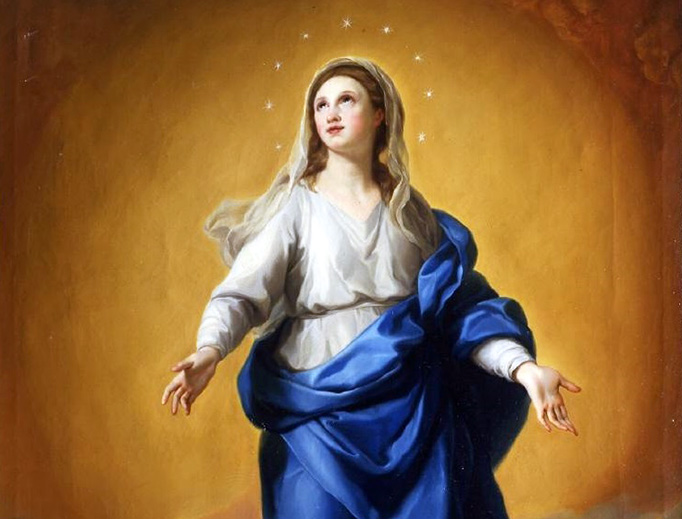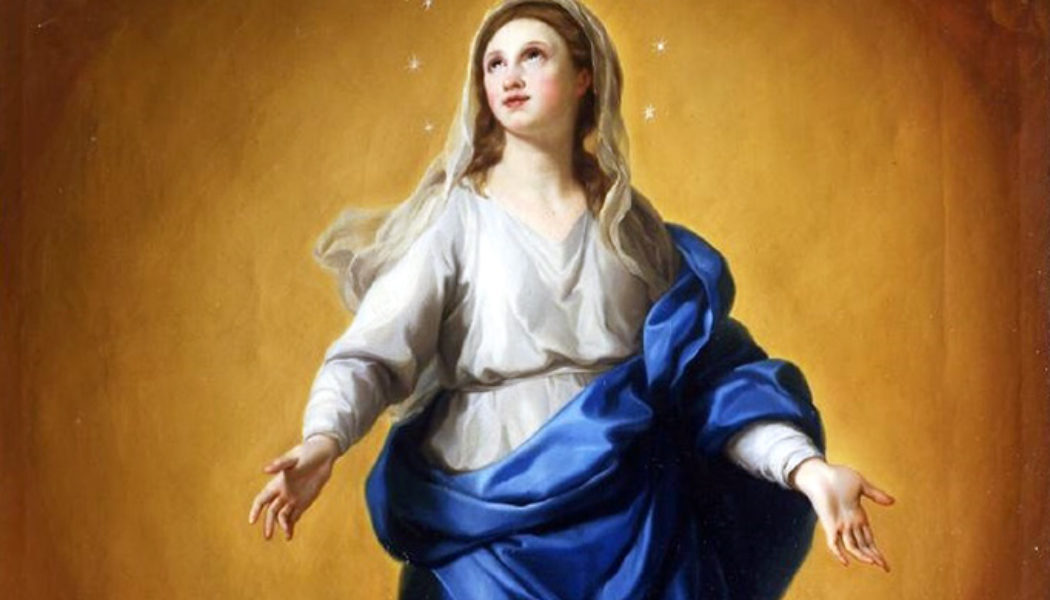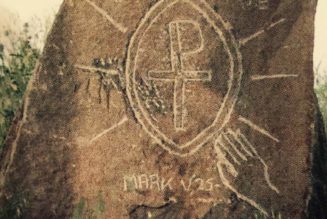
“Surely,” says St. Bernard, “the Mother of God could not have a name more appropriate, nor one more impressive of her high dignity. Mary is, in fact, the beautiful and brilliant star which shines upon the vast and stormy sea of the world.”
It was a stormy sea, all right, that was calmed by Mary and gave reason for her universal feast.
In 1683, people were celebrating the feast of the Holy Name of Mary in Spain, where it originated and where people had been observing it since 1513 with the approval of the Holy See. But elsewhere in Europe, things were not rosy. The outlook was gloomy. The situation was dire.
It was 112 years after the Battle of Lepanto was decisively won — a victory that led to the institution of the Feast of the Holy Rosary. This time, Turkish invaders from the Ottoman Empire were about to overrun Western Europe. The people everywhere — including the papal nuncio — implored and begged for help, turning to John III Sobieski, King of Poland. Sobieski had the courage to meet the challenge despite the situation not favoring him. And he had something better — a great devotion to the Blessed Virgin Mary.
Answering the pleas, Sobieski marched his army toward Vienna for a decisive showdown. Pope Innocent XI requested that the Rosary be said before the battle and asked everyone to pray for the defense of Christian Europe. As Father Kazimierz Chwalek Marians of the Immaculate Conception once explained, “When we’re overwhelmed and there seems no way out, he sends his mother to assist us. He sent a king who loved Our Lady and had a great devotion to her.”
That devotion was obvious. On the way, under a banner of Our Lady, Sobieski and his troops stopped to pray for Mary’s assistance at her shrine in Czestochowa. Then, after Mass on the morning of Sept. 12, he gave the order to his smaller, outnumbered army: “Let us march with confidence under the protection of Heaven and with the aid of the Most Holy Virgin!”
They did. St. Stanislaus Papczynski, who founded the Marian of the Immaculate Conception in Poland in 1670, had been a chaplain in the Polish army since their fight and victory against Turkish invaders in Ukraine. (He was also confessor to King John III Sobieski, those in the royal court, and the future Pope Innocent XII.) St. Stanislaus blessed the army.
At Vienna, confident under the banner of Mary, Sobieski himself led the charge, and his much smaller army and cavalry routed the Ottoman Turk invaders, thus ending the invasion threatening much of Europe. With Vienna and the Christian world saved, Sobieski credited the victory to God alone.
He rewrote Caesar’s famous words when he said: “Veni, vidi, Deus vicit” — “I came, I saw, God conquered.”
The Feast Expanded
To honor Mary for her aid in this great Battle of Vienna victory, and in thanksgiving to Mary for the victory on her feast day in 1683, Innocent XI would later extend the celebration of the feast of the Most Holy Name of the Blessed Virgin Mary to the Universal Church. But it would not be till the early 20th century that the feast would be moved (by Pope St. Pius X) from Sept. 17 to Sept. 12 to mark its connection with the victory at the Battle of Vienna. (The memorial was dropped after Vatican II since it seemed a duplication of the feast of the Nativity of the Blessed Virgin Mary, but in 2002 St. John Paul II reinstituted it.)
Why So Important
The feast, of course, is not all about celebrating a victory in one battle. But it surely can teach us to call on Mary in all our battles, beginning with the spiritual ones.
The Catholic Encyclopedia explains that “we venerate the name of Mary because it belongs to her who is the Mother of God, the holiest of creatures, the Queen of heaven and earth, the Mother of Mercy. … The feast commemorates all the privileges given to Mary by God and all the graces we have received through her intercession and mediation.”
Every Sept. 12 when we celebrate this memorial, we should resolve to always honor the Most Holy Name of Mary, recall her qualities and call constantly upon her protection and assistance.
What the Saints Have Said
St. Alphonsus Ligouri knew why. In his book The Glories of Mary, he said, “After the most sacred name of Jesus, the name of Mary is so rich in every good thing, that on earth and in heaven there is no other from which devout souls receive so much grace, hope, and sweetness.”
The Catholic Encyclopedia explains that “we venerate the name of Mary because it belongs to her who is the Mother of God, the holiest of creatures, the Queen of heaven and earth, the Mother of Mercy. … The feast commemorates all the privileges given to Mary by God and all the graces we have received through her intercession and mediation.”
Mary is always there to help us even in the direst circumstances. She keeps us safe. She defeats evil.
“The name of Mary,” says St. Anthony of Padua, “is sweeter to the lips than the honeycomb, more delightful to the ear than a sweet song, more entrancing to the heart than the purest joy.”
Look around at the battles of our day. “The tradition of the Church is that when you call upon her name in moral depravity, she is especially efficacious in this area,” Father Chwalek had said.
Alphonsus Ligouri recognized Mary’s powerful name gives strength to overcome temptations against purity, and Thomas à Kempis affirmed the devils fear her so much that on hearing her name they fly as from a burning fire.
St. Bonaventure agrees: “As wax melts before fire, so do the devils lose their power against those souls who remember the name of Mary and devoutly invoke it.”
The Power of Prayer
Nothing can defeat Mary. The winning side is always with Mary. Call upon her in her prayers, like the Memorare:
Remember, O most gracious Virgin Mary, that never was it known that anyone who fled to thy protection, implored thy help, or sought thine intercession was left unaided. Inspired by this confidence, I fly unto thee, O Virgin of virgins, my mother; to thee do I come, before thee I stand, sinful and sorrowful. O Mother of the Word Incarnate, despise not my petitions, but in thy mercy hear and answer me.
Follow the example of Sobieski and St. Pius V (the pope during the Battle of Lepanto) by praying the Rosary before your battles. Listen to Our Lady of Fatima, who asked us to pray the daily Rosary for peace.
And heed St. Bernard’s wise words: “In dangers, in perplexities, in doubtful cases, think of Mary, call on Mary; let her not leave thy lips; let her not depart from thy heart.”
As the Church celebrates this memorial Sept. 12, resolve to honor the Most Holy Name of Mary always. Constantly call on Mary’s assistance and protection. Teach your children to do the same. Say a Hail Mary. If we do, like great men and saints of other eras, we too will be the victors through the Holy Name of Mary.









